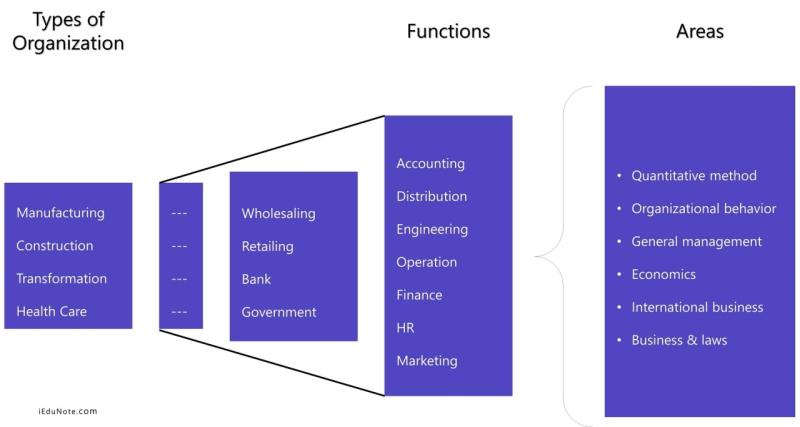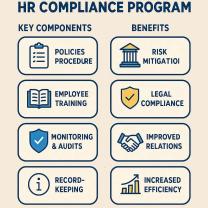Why operations management is so important for your business?
Operations management plays a crucial role in the success and sustainability of a business. It involves overseeing and optimizing various processes within an organization to ensure efficiency, effectiveness, and the delivery of value to customers. Here are several reasons why operations management is vital for a business:
Efficient Resource Utilization:
- Operations management helps businesses make optimal use of resources, including labor, materials, equipment, and time. Efficient resource allocation leads to cost savings and improved profitability.
Cost Control and Reduction:
- Through effective operations management, businesses can identify areas where costs can be reduced without compromising quality. This can involve streamlining processes, negotiating better deals with suppliers, and minimizing waste.
Improved Productivity:
- Operations management focuses on enhancing productivity by optimizing workflows and processes. This leads to increased output with the same or fewer resources, contributing to higher profitability.
Quality Improvement:
- Operations management plays a key role in maintaining and improving the quality of products or services. It involves implementing quality control measures, continuous improvement initiatives, and adherence to industry standards.
Customer Satisfaction:
- Efficient operations result in timely delivery of products or services, meeting customer expectations. Operations management ensures that processes are aligned with customer needs and that there is consistency in delivering high-quality products or services.
Flexibility and Adaptability:
- Businesses face constant changes in market conditions, customer preferences, and technology. Operations management helps organizations become more flexible and adaptable by designing processes that can respond quickly to changes in demand or market dynamics.
Supply Chain Management:
- Operations management is closely tied to supply chain management, which involves the entire process from sourcing raw materials to delivering the final product to customers. Effective supply chain management ensures a smooth flow of goods or services through the production and distribution processes.
Risk Management:
- Operations managers assess and mitigate risks associated with various aspects of the business, such as supply chain disruptions, regulatory changes, or unforeseen events. Effective risk management helps ensure business continuity.
Strategic Alignment:
- Operations management aligns operational processes with the overall business strategy. This alignment ensures that the organization's resources are directed towards achieving strategic goals and objectives.
Innovation and Continuous Improvement:
- Operations management encourages a culture of innovation and continuous improvement. By regularly reviewing and optimizing processes, businesses can stay competitive, adapt to market changes, and embrace new technologies and methodologies.
Employee Engagement and Satisfaction:
- Well-managed operations contribute to a positive working environment. When employees see that processes are efficient and their roles are meaningful, it can boost morale, engagement, and job satisfaction.
In summary, operations management is vital for businesses because it ensures the effective and efficient utilization of resources, enhances productivity, and enables organizations to meet customer demands while adapting to changing market conditions. A well-managed operations function contributes to the overall success and sustainability of a business.
The Crucial Role of Operations Management in Business Success
1. Why Operations Management Matters:
Operations management serves as the backbone of any thriving business. It encompasses the planning, organizing, and controlling of activities that transform inputs (resources, materials) into outputs (goods, services) to meet customer demands. Here's why it's crucial:
- Drives Efficiency and Productivity: Effective operations streamline processes, eliminate waste, and optimize resource allocation, leading to faster production, improved output, and reduced costs.
- Boosts Customer Satisfaction: Smooth operations ensure timely deliveries, higher quality products/services, and fewer errors, resulting in happy customers and repeat business.
- Enhances Competitiveness: Streamlined operations and satisfied customers give businesses a significant edge in a competitive market.
- Improves Adaptability: Strong operations management fosters a culture of continuous improvement and enables businesses to quickly adapt to changing market dynamics and customer needs.
- Supports Scalability: Efficient processes and optimized resource utilization allow businesses to scale up production and operations smoothly as they grow.
2. Building Efficiency and Profitability:
Effective operations management directly contributes to a business's bottom line in several ways:
- Cost Reduction: Minimizing waste, optimizing inventory, and streamlining processes lead to significant cost savings across various aspects of the business.
- Increased Revenue: Improved efficiency and faster production allow businesses to meet higher demand and generate more revenue.
- Enhanced Product Quality: Better quality control and process management result in fewer defects and higher customer satisfaction, leading to increased sales and repeat business.
- Improved Resource Utilization: Effective planning and scheduling ensure optimal use of resources, boosting productivity and minimizing idle time.
- Data-Driven Decision Making: Operations management relies heavily on data analysis to identify areas for improvement and make informed decisions, optimizing outcomes.
3. Real-World Examples:
Numerous businesses showcase the power of strong operations management:
- Toyota: Their famed "Just-in-time" manufacturing system minimizes inventory costs and waste, contributing to their global success in the automotive industry.
- Zappos: Their customer-centric approach, empowered employees, and data-driven decision making have led to high customer satisfaction and loyalty, propelling their growth in the e-commerce sector.
- Amazon: Their supply chain optimization, automation, and data analytics prowess enable faster deliveries, lower costs, and a wider product selection, solidifying their dominance in online retail.
These examples demonstrate how implementing strong operations management practices can empower businesses of all sizes and across various industries to achieve significant success and sustainable growth.
By prioritizing efficient processes, quality control, and continuous improvement, businesses can unlock their full potential and thrive in today's competitive landscape.













